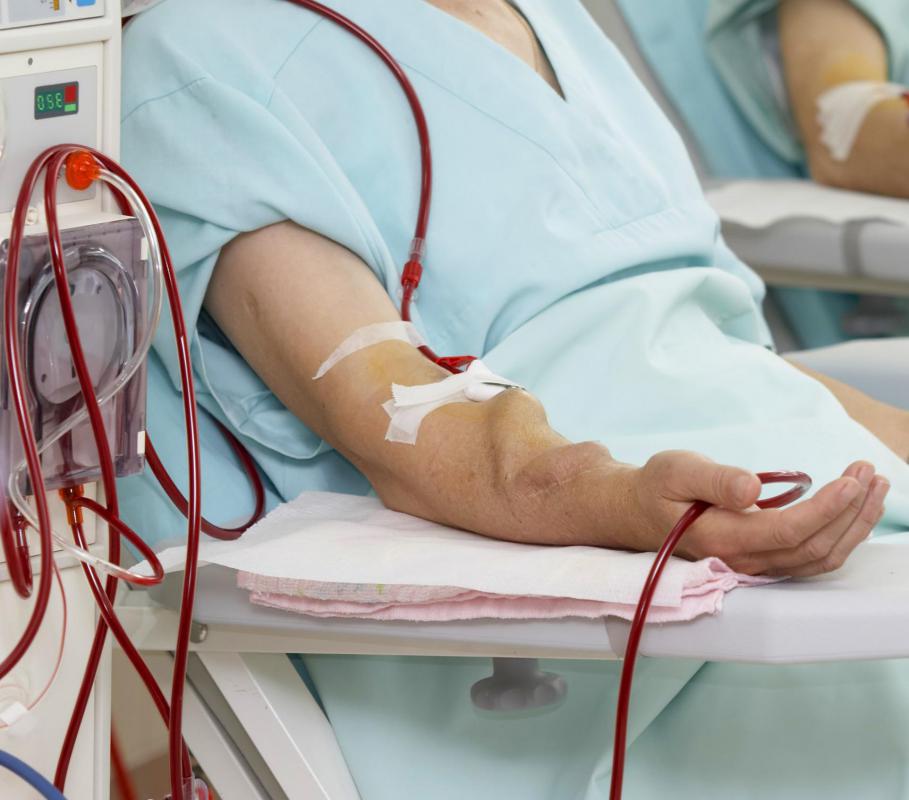At WiseGEEK, we're committed to delivering accurate, trustworthy information. Our expert-authored content is rigorously fact-checked and sourced from credible authorities. Discover how we uphold the highest standards in providing you with reliable knowledge.
What are the Most Common Uses for Heparin Therapy?
Heparin is an enzyme created in the body and used in medicine as an anticoagulant. Heparin therapy commonly is used to treat thrombosis, which occurs when there is a blood clot within a blood vessel and can be fatal if not treated. Thrombosis is caused by a variety of conditions, including acute coronary syndrome, atrial fibrillation, pulmonary embolism, and hemofiltration. Heparin therapy is commonly used to treat these conditions.
There are many enzymes in the body that are responsible for the coagulation, or clotting, of blood, including thrombin, fibrin, and fibrinogen. Thrombin is the enzyme that begins the clotting process in the body. Heparin therapy works by blocking thrombin, thereby inhibiting blood clots.

This type of therapy is also sometimes called antithrombotic therapy. This term is used to describe any therapy that is anticlotting in nature. Heparin is often used in these therapies on its own or in conjunction with other anticoagulants, such as aspirin, warfarin, or any other thrombin inhibitors.
Acute coronary syndrome commonly is treated with heparin therapy. This condition most often occurs when the heart muscle is not receiving enough blood because of plague blocking the arteries. Once the plaque has blocked an artery, platelets begin stick to the plaque, which creates a clot. The enzyme treats this condition by breaking up the thrombosis in the artery so that blood can reach the heart.

Another condition sometimes treated with heparin therapy is atrial fibrillation, which is an irregular or quickened heart beat. Atrial fibrillation causes an increased risk of blood clots for some individuals. These individuals are treated with the enzyme to decrease or eliminate this risk of clotting.
Pulmonary embolisms most often occur when a blood clot makes its way to the lungs. This is an extremely dangerous condition that can be fatal; if a clot reaches the lungs, it inhibits blood from being oxygenated and causes the heart to strain to supply the lungs with blood. Heparin therapy is used to treat pulmonary embolisms to either dissolve the blood clot or keep it from growing larger.
In addition to its common uses, heparin therapy is also being used experimentally. Scientists are studying whether or not this type of therapy is useful in preventing blood clots, which are common after some surgeries. Thus far, results have been promising. Lower doses of the enzyme are used during these experimental procedures because of the risk it creates for increased bleeding during and after surgery.
AS FEATURED ON:
AS FEATURED ON:












Discuss this Article
Post your comments